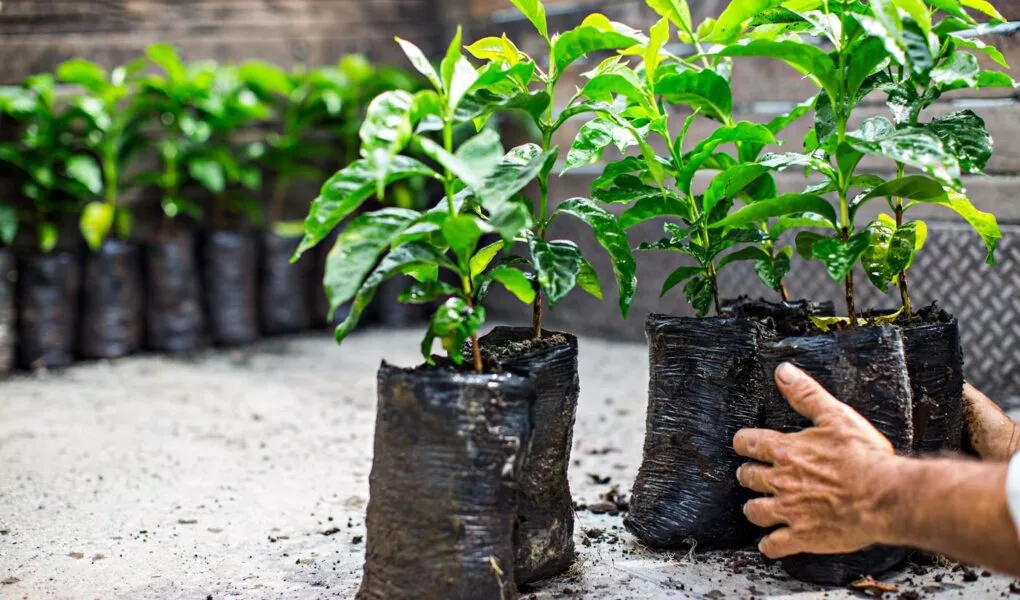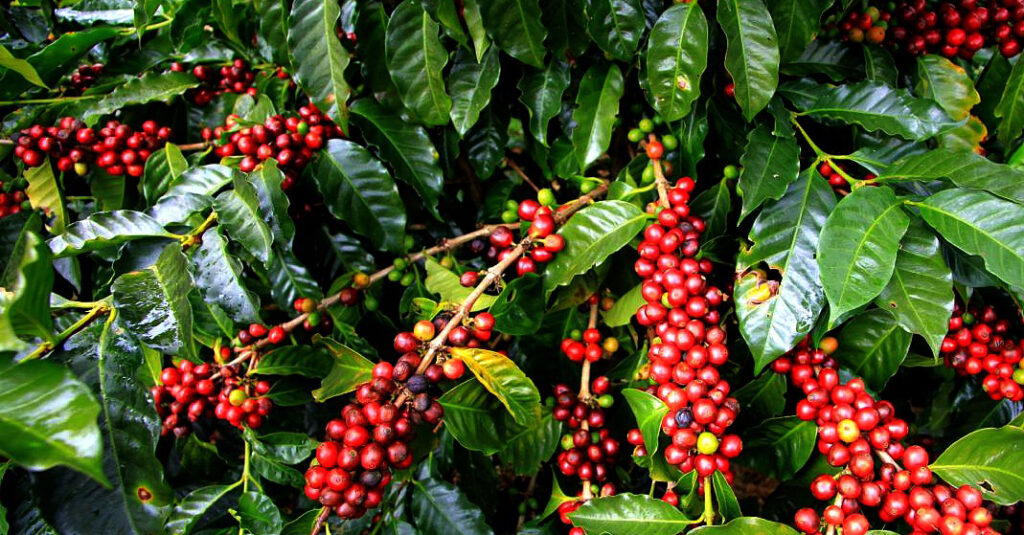In recent years, the area of open coffee plantations has been increasing. Higher tree cultures are gradually being cut down, and traditional varieties of “shadow” coffee are replaced by sun resistant and fungal infections. At the same time, the natural environment of many mammals, birds and insects disappears. And then the animals themselves. However, according to recent studies, it is more profitable for coffee farms to preserve natural ecosystems rather than destroy them. The article will describe in detail how birds and insects help farmers and how biodiversity can be preserved in the producing regions.
How birds and bees help coffee trees
Food production depends on biodiversity, in particular on pest control. It is often believed that birds harm coffee plantations: they eat berries and spoil the harvest. In fact, they destroythe coffee beetle-driller, which is the main pest of coffee. He penetrates into the coffee berries, feeds on pulp, lays eggs inside the grain, providing food and his offspring. This affects the yield.
Also in the cultivation of coffee plays an important role pollination. This is the process in which pollen from the anther is transferred to the stigma of the pistil. There are two main types of pollination:
- cross – the pollen of one plant is transferred to the stigma of the pistil of another plant of the same species;
- self-pollination — pollen is transferred to the stigma of a pistil of the same flower or between the flowers of the same plant.
Sometimes pollination is carried out in two ways at once – this is how the coffee tree works.
Cross-pollination is more beneficial for the plant: with it, genes are exchanged, and the offspring is more enduring and viable, the size of coffee berries and the yield of the tree increase. However, this method requires the participation of intermediaries who would deliver pollen grains from the stamen to the reception of the pestic. This function is performed by animals.
Recent estimates have shown that 75% of the world’s leading food crops, including coffee, depend on pollination by animals: insects, mammals and birds.
The importance of animals in the process of coffee pollination is confirmed by research. For example, an experiment was carried out on 30 small coffee farms in Costa Rica . The researchers compared how the crop ripens when plantations are “cut off” from birds and bees.
Scientists found that their cumulative positive effect on fruit formation and their weight was greater than individual. The results showed that the participation of birds and bees in pollination increased the setting and weight of fruits by 4–11%, and also reduced infection with a coffee driller beetle. According to the authors of the experiment, the absence of birds and bees will lead to a decrease in yield by 24.7 %, which corresponds to a loss of $ 1066 per hectare.
It turns out that coffee trees produce the highest quality fruits when birds and bees work together. The former fight pests, and the latter are the main pollinators of coffee.
The participation of animals provides direct financial benefits. For example, global pollination of crops by bees and birds aloneis estimated at$195-387 billion.
All studies emphasize that when growing coffee, it is necessary to develop agroforestry systems. This will help support biodiversity and plant health and increase producer revenues.

How to conserve biodiversity on the farm
Intensive farming practices lead to the disappearance of wild plants and animals. For example, deforestation deprives birds of the food base: they feed on insects from forests, which are replaced by plantations. As a result, the numbers of some species—blue forest singingandgolden-winged foam—have continued to decline for several years. These species have already been listed in the red list of the International Union for Conservation of Nature (IUCN) with the category “Endangered Endangered”.
One way to help nature is to grow coffee in natural conditions, in the shade of other trees. Such plantations will not only become a habitat for wild animals, but will also allow to produce better quality grain. We have already written that shadow cultivation has a beneficial effect on the taste of coffee — making it more complex and complex.
Also, farmers can leave some parts of their farms unprocessed, as, for example, did the owner of the farm La Fragua in Colombia. The total area of this estate is approximately 360 hectares, of which only 80 are coffee.
Such a farming system has a positive effect on nature: unseeded areas can be places for nesting, feeding or overnight stay for birds, useful in agriculture. But in this case, farmers need government support to compensate for crop losses.
Now scientists are exploring new ways of managing. According to the authors of the study on land use in the cultivation of coffee, the protection of biodiversity and the preservation of agricultural production is one of the greatest modern tasks. Scientists are studying two strategies:
“land saving” – preservation of forests adjacent to open plantations,
“division of land” is a system of agroforestry in which shady trees and other vegetation exist next to cultivated ones.
“There is ample evidence that growing coffee in the shade contributes to the preservation of more animal species than growing in the sun. That’s why we’ve been promoting this for decades as the primary approach to conservation in producing regions,” says Jonathan Valente, author of the study, a fellow at Oregon State University and the Smithsonian Migratory Bird Center .
Nevertheless, scientists have also obtained other interesting results. It turned out that the two environmental strategies — land sharing and their economy — actually complement each other. Growing coffee in the shade is favorable for birds from open areas and species that live everywhere. And for forest dwellers, mosaic plantations are more suitable — heterogeneous territories consisting of different groups or ecosystems.
Valente says, “Such coffee plantations support more species during the breeding season, while shady ones support in its absence.” The authors note that maximum animal protection in coffee systems may require an integrated approach to growing in the shade and mosaic landscape.
According to the authors, the results of the study will be used to develop new requirements for a certificate of conformity from the Smithsonian Bird Friendly Institute. This will be the most demanding environmental protection scheme in the coffee industry. Bird Friendly certification will focus on preserving the environment for birds. Within its framework, farmers will be given a premium for their products. Also, thanks to strict cultivation standards, this program will be an important link in the fight against climate change.

Conclusion
Birds and bees play an important role in growing coffee – by destroying pests and pollinating flowers, animals enhance each other’s positive effect. This leads to better fruit quality, increased yields and increased incomes of farmers.
Deforestation for new coffee plantations leads to a reduction in the number of animals and, therefore, the opposite effect — a decrease in farm yields.
Farmers can help nature and improve their crops. To do this, you need to competently design coffee plantations together with conservation specialists and use the strategies of “savings” and “land division”.
Brazilian Coffee Tea
Made for the first time in the world and produced only in Ukraine from a purely environmentally friendly product.
Our products registered in Switzerland No. 54191 dated October 12, 2008 Artisha is not just a company or an online store. It is an exquisite taste of drinks with different types of tea and coffee.





